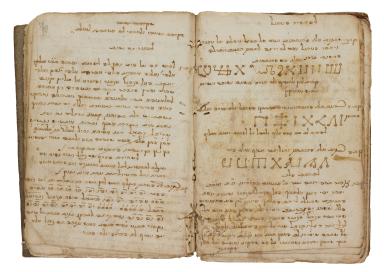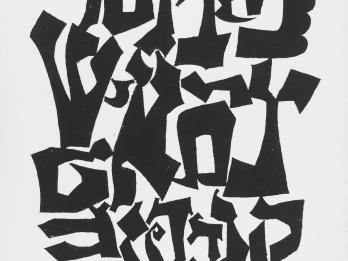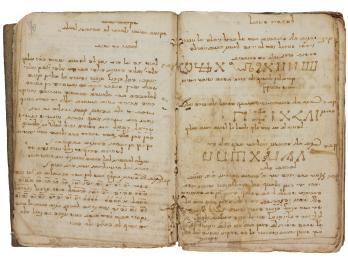Pardes rimonim (Garden of Pomegranates)
Moses Cordovero
1549
One who uses the Ineffable Name in this world will have a great punishment, and the reason for this is that he mentions holy letters in impurity, and combines that which is holy with that which is profane, and that which is profane with that which is holy. And apart from this, he uses the Name and becomes glorified by it; for is there anyone who makes a king serve him and is not condemned to death? This is not only death from this world, as we have seen many who were cut off [from the world to come], as it is said: “One who makes a worldly use of the crown [of the Torah] shall pass away” [m. Avot 1:13]; this is also the cutting off of the soul and its being made into a demon, for just as he connected and conjoined the holy letters for the power of impurity in his mentioning of the Name in connection with the outer forces, due to the smallness of his purity, so too, measure for measure, the Holy One separates his soul from the holy and expels it to the outer forces. And all of those powers with which he concerns himself in their actions are his enemies, and they seek his harm in this world and in the world to come. And most of the time, they entice him and deceive him concerning matters of the Messiah, and they show him names that make him go insane and make him want to become the Messiah, or a prophet, in order to exalt himself in the eyes of Israel due to their great desire and yearning for the Messiah; and afterwards he remains in a state of shame and disgrace. We have never seen anyone who has entered into this without stumbling in this regard, apart from the holy pure ones, such as Judah the Pious, R. Joseph Gikatilla, R. Eleazar of Worms, Naḥmanides, and many others who knew the power of the Name but they did not trouble their Creator by using it to perform actions.
Credits
Published in: The Posen Library of Jewish Culture and Civilization, vol. 5.






